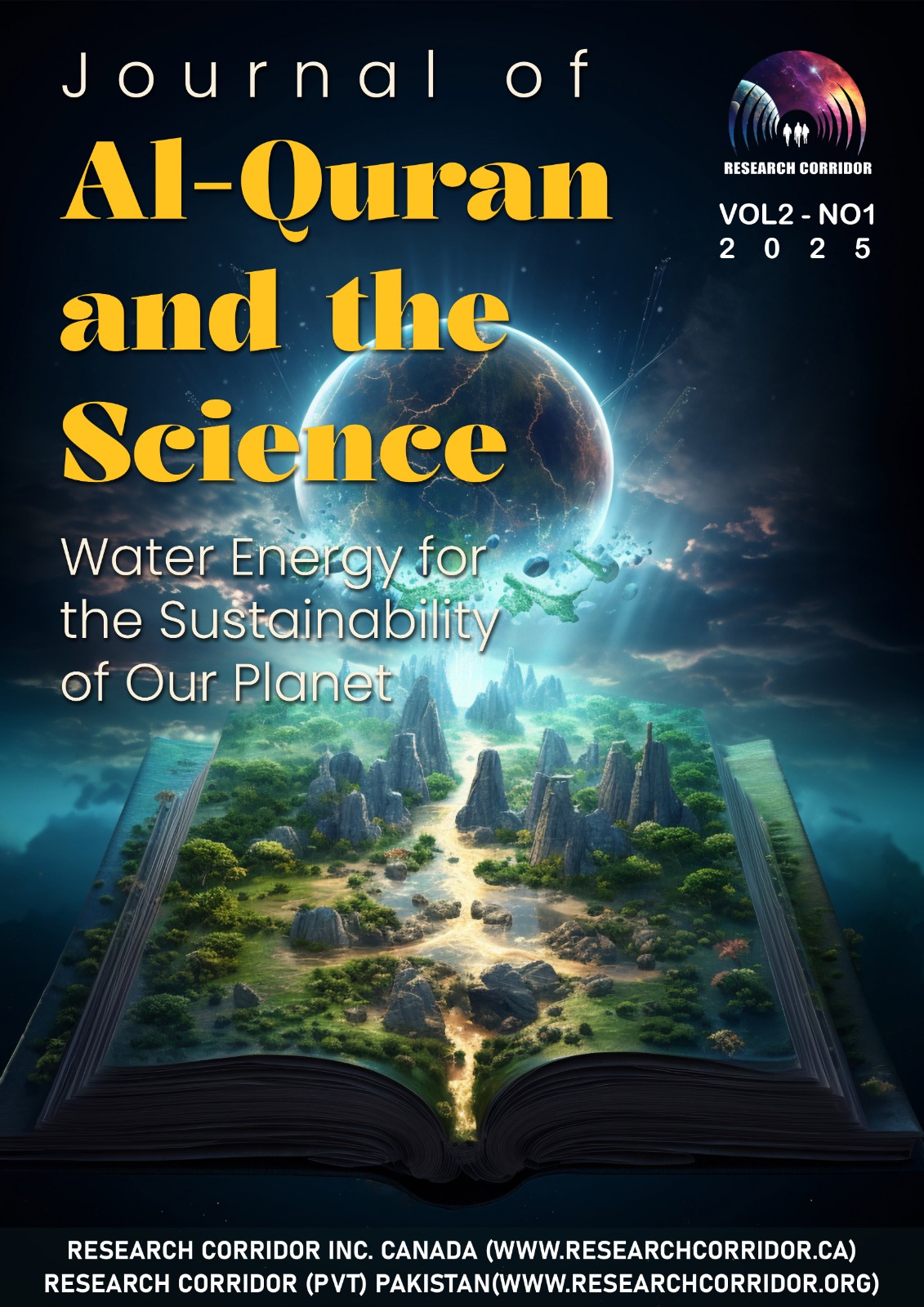Quranic Reflections on Water Conservation: Insights for Sustainable Living
Keywords:
Water conservation, Quranic reflections, sustainable living, environmental ethics, stewardship, moderation, Islamic teachings, water as a divine blessing, sustainable practices, climate change.Abstract
Water is an essential resource for life on Earth, and its conservation has become an urgent global concern due to the increasing threats of climate change, population growth, and unsustainable water usage. In this context, Islamic teachings, particularly those found in the Quran, provide valuable insights into the importance of water conservation, encouraging a balance between human needs and environmental sustainability. The Quran highlights the sacredness of water and the responsibility of humankind to use it wisely. Water is presented not only as a physical sustenance but as a symbol of life and divine blessing, urging believers to respect natural resources as part of their duty towards God’s creation. This paper explores Quranic reflections on water, drawing attention to verses that emphasize moderation, respect for natural resources, and the ethical responsibility of individuals and communities to preserve water for future generations. By examining the Quranic principles of stewardship (Khilafah) and justice (Adl), this study highlights the relevance of these teachings in promoting sustainable living practices today. The reflection on water in the Quran serves as a guide for contemporary approaches to environmental challenges, illustrating the need for a holistic understanding of water conservation that integrates religious, ethical, and practical perspectives. Through a careful review of Quranic verses, historical context, and contemporary examples, the paper aims to provide insights into how Islamic thought can contribute to global efforts towards sustainable water management.





